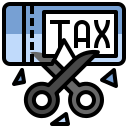Building a Scalable Tax Compliance Foundation
Sole proprietorships and LLCs offer simplicity, but rapid hiring, fundraising, or profit distributions might favor an S‑Corp or C‑Corp. Evaluate ownership structure, investor expectations, and stock plans early. Reorganizing later can be costly and distracting during pivotal growth moments.
Building a Scalable Tax Compliance Foundation
Obtain federal and state tax IDs, register in every jurisdiction where you have employees, inventory, or economic nexus, and document your footprint. A simple nexus map in your finance wiki clarifies when sales, payroll, and franchise taxes apply, preventing missed filings and penalties.



